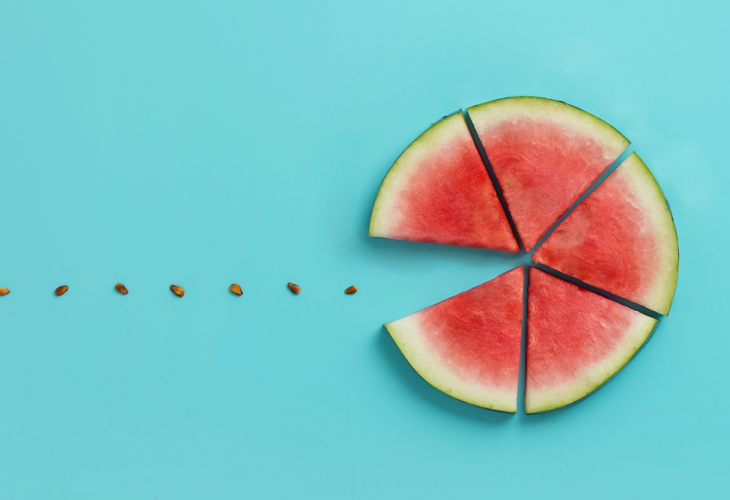Embracing Summer: Dive Into the Season's Juicy Fruits
Colorful, refreshing, and finally here: Discover which summer fruits to enjoy, their benefits, and what's considered too much?

Summer is a fantastic time to enjoy a vibrant array of fresh, delicious fruits. After months of consuming citrus fruits rich in vitamin C that help protect us from winter illnesses, the markets are filling up with fruits that are not only refreshing but also packed with a plethora of vitamins, minerals, and antioxidants that contribute to our health.
Why Choose Summer Fruits?
Summer fruits, as a group, offer several health benefits:
High Water Content
Most summer fruits, like watermelon and melon, are high in water content. This helps maintain the body's fluid levels, especially on hot days, and prevents dehydration.
Rich in Vitamins and Minerals
Summer fruits are rich in a variety of vitamins and minerals. For instance, vitamin C found in grapes, peaches, and plums boosts the immune system, supports skin health, and improves the absorption of plant-based iron. Vitamin A, found in melons and watermelons, is important for eye health and the immune system.
Natural Fiber Source
These fruits are a good source of dietary fiber, crucial for digestive health, helping maintain a sense of fullness, and preventing constipation. Fiber also helps regulate blood sugar levels and promotes heart health.
Rich in Antioxidants
Summer fruits are abundant in antioxidants like lycopene in watermelon and resveratrol in grapes, which help prevent cell damage, reduce inflammation, and lower the risk of chronic diseases such as cancer and heart disease.
Low-Calorie Snacks
Many summer fruits are low in calories, making them a healthy, nutritious snack option that fits well into weight-loss diets.
Popular Summer Fruits – What's Your Favorite?
Everyone has their favorite fruit, and each one has its unique health benefits. Here are some of the most beloved summer fruits and their benefits:
Watermelon
Watermelon is the quintessential summer fruit. It contains a large amount of water (about 90%), which helps maintain fluid balance in the body. In addition, watermelon is rich in vitamin C, vitamin A, and antioxidants like lycopene, which help prevent heart disease and cancer.
Peach
Peaches are a good source of vitamin C, vitamin A, and dietary fiber. The fiber supports digestive health and helps maintain a feeling of fullness. Additionally, peaches contain flavonoids that improve blood flow and reduce blood pressure.
Grapes
Grapes are high in antioxidants like resveratrol, known for their anti-inflammatory and anti-cancer properties. They are also a good source of vitamin K and vitamin C, important for boosting the immune system and skin health.
Melon
Melons contain vitamins such as vitamin A, vitamin C, and folic acid. Additionally, melons are rich in antioxidants and help maintain skin moisture and eye health.
Plum
Plums contain dietary fiber, vitamin C, and antioxidants. The fiber aids digestion, and the antioxidants help reduce the risk of chronic diseases like cancer and heart disease.
How Much Should You Consume?
It is recommended to consume about 2-3 servings of fruits per day, with each serving being one cup of cut fruit, a medium-sized piece of fruit, or half a cup of dried fruits.
Overconsumption of fruits can lead to excessive intake of natural sugars, which may affect blood sugar levels, especially in people with diabetes. Similarly, too much fiber can lead to digestive discomfort, gas, and bloating. Therefore, it is essential to maintain balance and consume fruits in the recommended amounts.
* The content on this channel is not intended as professional advice, recommendation, or a substitute for consulting a specialist or receiving medical advice.

